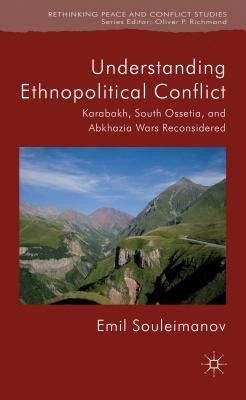
- We will send in 10–14 business days.
- Author: E Souleimanov
- Publisher: Palgrave Macmillan
- ISBN-10: 1137280220
- ISBN-13: 9781137280220
- Format: 15 x 23.6 x 2 cm, hardcover
- Language: English
- SAVE -10% with code: EXTRA
Reviews
Description
This book seeks to explore the relevance of major theoretical and methodological approaches currently dominating the field of ethnic conflict and civil war research, testing their efficacy by applying them to three major South Caucasus conflicts of the late 1980s and early 1990s.
Souleimanov explores the causes and dynamics of ethnic conflict and civil war, distinguishing between onset-based and process-based theories. He introduces a scheme of periodization which links the phase of low-scale inter-ethnic violence with the phase of sustainable organized violence, asserting the crucial importance of elites and their use of opportunity in power asymmetry as a key factor in instigating full-scale civil war.As a merger of theoretical and empiricist approaches, this book focuses on the case-specific contextual richness of the local conflicts in Karabakh, Abkhazia, and South Ossetia to draw solid theoretical conclusions as well as providing suggestions for the improvement of current theories.EXTRA 10 % discount with code: EXTRA
The promotion ends in 17d.23:36:01
The discount code is valid when purchasing from 10 €. Discounts do not stack.
- Author: E Souleimanov
- Publisher: Palgrave Macmillan
- ISBN-10: 1137280220
- ISBN-13: 9781137280220
- Format: 15 x 23.6 x 2 cm, hardcover
- Language: English English
This book seeks to explore the relevance of major theoretical and methodological approaches currently dominating the field of ethnic conflict and civil war research, testing their efficacy by applying them to three major South Caucasus conflicts of the late 1980s and early 1990s.
Souleimanov explores the causes and dynamics of ethnic conflict and civil war, distinguishing between onset-based and process-based theories. He introduces a scheme of periodization which links the phase of low-scale inter-ethnic violence with the phase of sustainable organized violence, asserting the crucial importance of elites and their use of opportunity in power asymmetry as a key factor in instigating full-scale civil war.As a merger of theoretical and empiricist approaches, this book focuses on the case-specific contextual richness of the local conflicts in Karabakh, Abkhazia, and South Ossetia to draw solid theoretical conclusions as well as providing suggestions for the improvement of current theories.

Reviews